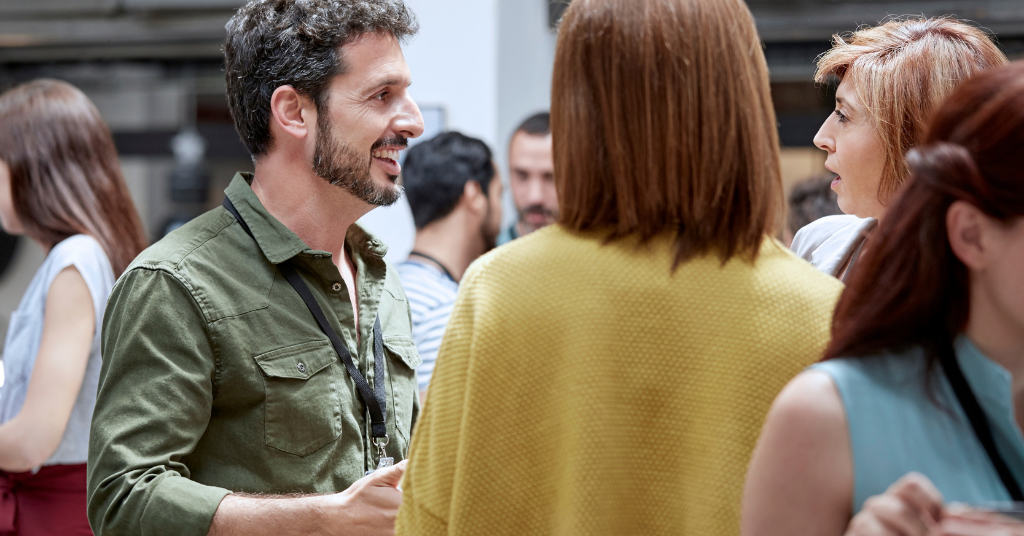
Meet Phonak “hEARo” Elspeth Bowes
May 7, 2021
Marlee Matlin, Siân Heder star in ‘CODA’: a film about a child of deaf adults
May 12, 2021Religion gets increasingly accessible to the deaf community

Everyone should have the right to full access where their spiritual beliefs and needs are concerned. Thankfully, religion is becoming increasingly accessible to the deaf community.
From the Vatican to Israel, examples of religion becoming more accessible for deaf and hard of hearing worshipers are coming from around the globe.
The Vatican
Recently the Vatican began a new project called ‘No one excluded.’ The project includes a sign language service on its YouTube channel. The service is offering both Italian Sign Language (LIS) as well as American Sign Language (ASL). Live streaming began for the Pope’s Easter blessing on April 4. This recent move comes as part of the Vatican’s ongoing work to reach out to its faithful members with disabilities.
On last year’s international day of persons with disabilities, Pope Francis commented on the role of Catholics with disabilities.
“Disabled people are members of equal standing in the Catholic Church and, as such, have the same right to the sacraments as everyone else,” he said.
England
Church services have long been confusing for people with hearing difficulties. What should be a spiritual shared bond within a congregation can often be a lonely experience when the worshiper cannot hear the sermon.
This is beginning to change in churches around the world. For example, in the Church of England, there is a charity called Deaf Anglicans Together. Its website states: “We provide teaching and fellowship opportunities for Deaf Anglicans and make small grants in support of individual projects involving Deaf people. We also seek to promote the development of worship resources in BSL and using Deaf culture.”
United States
In Iowa, a hearing Christian minister is doing his part to be accessible to deaf congregants. Duane King told Christianity Today that a meeting with a deaf couple back in 1970 got him thinking. He realized that deaf people needed full integration within the church.
“Most hearing people don’t understand how difficult it is to learn to read what you cannot hear,” King told Christianity Today. “Deaf people rely so much on their eyesight that they want everything to be tangible; they want to be able to see everything. This sometimes makes it harder.”
“Most hearing people don’t understand how difficult it is to learn to read what you cannot hear.”
Translating the Bible to ASL isn’t easy. King’s project started in 1981 and was finally completed in 2020. It has since gone out to some 3.5 million people.
Africa
Meanwhile, in Africa, a new church for the deaf opened in Tanzania last year. The Immanuel Church of the Deaf in the Mbeya region has full services for its deaf congregants who had felt left out of the mainstream Christian services before. The church has a thriving Facebook page for its followers. They are able to keep up on times, dates, and other useful news related to the church.
Read more: 6 sign language cafes to visit around the world
Israel
In Israel, a story was reported back in February by Jewish News about Israel’s only deaf rabbi translating the Torah into sign language. U.S.-born Rabbi Yehoshua Soudakoff told the Jewish News that his project intends to make Judaism accessible and possible for the deaf and hard of hearing. There are roughly 15,000 Israelis who communicate in sign language. Rabbi Soudakoff estimates that making a visual Torah will take 15 years.
Scotland
The UK disability and lifestyle magazine able featured a mosque in Glasgow, Scotland. Al-Farooq Education and Community Centre created the first Islamic studies project in Scotland intended solely for the deaf community. This is a major breakthrough for Scotland. There are already services regularly conducted in mosques in England using British Sign Language (BSL).
The inspiration for the new initiative came from a visit to a Birmingham mosque, where Imam Sohhaib first saw the Friday night sermons being translated into BSL.
“We’re an organization that stands for equal opportunities so we wanted to give out the right message to people who have disabilities and who have previously been left out,” he told able. “Sadly the Muslim community has lacked in providing services like these but we have to start somewhere so we have taken the initiative and we want to be an example for other organizations and motivate others to carry out similar projects.”
Indonesia
Meanwhile, Indonesia has a new online service that includes the deaf community. The Qur’an Indonesia Project — which started in 2015 — is an online service offering recordings from the Qur’an in Arabic, English, and Indonesian read by volunteers. Sign language video translations are also available.
An estimated 70 signers are working on them. Back in 2018, volunteer and self-styled deaf activist Annisa Rachmania told the Jakarta Globe, “I never knew the meaning of the verses. This project is so inspiring. Now people can find out what the words mean.”
Read more: Why raising awareness about hearing loss is so important



